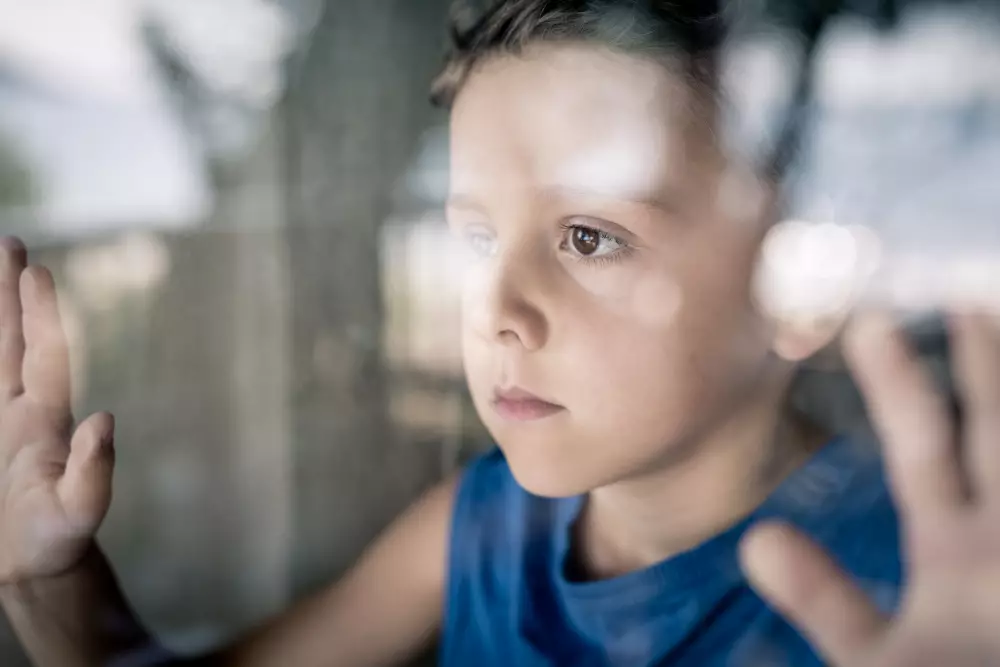When are Section 20 Agreements Used?
Under Section 20 of the Children Act (1989), Local Authorities have a duty to provide a child with somewhere to live if they either don’t have a home or their living conditions are deemed unsafe.
Some of the most common reasons for Section 20 being used include:
- Social workers becoming worried about the care or accommodation given to a child
- A parent becoming seriously ill and being unable to properly care for their child
- A child being excluded from the family home by their parents
- Parents being unable to manage a child’s care needs or keep a child safe
- There being no person with parental responsibility for the child
Why are they asking me to sign a Section 20?
You should talk to the Social Worker about your specific situation, but usually, they do this because they're worried about your child's safety, they have special needs that require different care, or because you might not be able to meet their needs anymore.
Do I have to agree to Section 20?
Section 20 is known as "voluntary accommodation," which means you have the choice to sign it or not. However, it's crucial to consult a solicitor for legal advice to fully grasp your options. If the Local Authority has serious concerns about your child's well-being, they might have to explore other options, such as initiating court proceedings or temporarily placing your child under police protection.
When contemplating whether to sign the Section 20 Notice, it's important to ask the Social Worker or Local Authority to clearly outline the level of family time/contact you'll have with your child while they are not in your care. Additionally, inquire about the duration they intend to accommodate your child.
If you decide to sign the Section 20 notice, request written confirmation of this agreement and details about the plan for your family moving forward.
What Happens After Agreeing to a Section 20?
After agreeing to a Section 20, a child will be placed in local authority care or with family or friends. Any relative or friend who agrees with the Local Authority to look after a child under a Section 20 agreement should be given Local Authority support including financial support to maintain the child.
The Local Authority should:
- Conduct further assessments and investigations to decide if they need to issue a court application or can return the child
- Give the parents time to address health issues, or where a child’s care is complex, give them time to rest - this is known as respite
- Try to work with the parents to address any issues of concern and to make changes so that the child can be returned to them - this will depend on the level of cooperation between parents and the Local Authority
It’s important to remember that signing a Section 20 Agreement doesn’t mean handing over parental responsibility of your child. It should only be used as a short-term measure to make sure the right care and support is given as soon as possible.
If your child has been out of your care for a long period under a voluntary agreement, it might be worth speaking to one of our care proceedings solicitors to find out what you can do.
Who needs to Agree to a Section 20?
For a Section 20 Agreement to be put in place for a child under the age of 16, everyone with parental responsibility and Local Authority need to agree that this is the best decision for the child.
As with any agreement, it’s important that you know what you’re signing up for.
You’re entitled to get legal advice before entering into a Section 20 agreement so that you fully understand the terms and implications. You might also be eligible for legal aid after an assessment.
Section 20 agreements can differ so it’s important you know exactly what the agreement says. Questions to consider might include:
- Will the agreement be for a specified time period?
- Will there be any investigations undertaken?
- Will there be a pre-proceedings meeting?
- Where will my child/children be placed?
- When will I spend time with my child/children and how will this be arranged?
You should be given written confirmation of the agreement, which you’ll be expected to sign.
You might also be asked to sign a 'Contract of Expectations', which sets out what’s expected of both you and your Local Authority. Again, you should be given time to get legal advice before signing this.

What Happens if I Don’t Agree?
If you don’t agree and the Local Authority doesn’t want your child to remain in your home, they may decide to take the following action:
- Request that the police use their powers of protection which allows them to accommodate the child for up to 72 hours
- Apply for an Emergency Protection Order – this lasts for 8 days, with a possible extension to a maximum of 15 days
- Apply to the Court for an Interim Care Order
How Do I End a Section 20 Agreement?
You can usually end a Section 20 Agreement at any time as long as you have parental responsibility. This can be done verbally but we’d recommend doing it in writing. It’s also worth bearing in mind that a child over the age of 16 may be able to choose to continue Section 20 arrangements, even if their parents disagree with it.
If the Local Authority doesn’t want the child to return to your home, they can seek a Police Protection Order or make an application to Court and start Care Proceedings.
In some situations, it could be better to enter court proceedings as the Judge might disagree that a child should be kept out of your care and refuse requests from the Local Authority. But it’s always a good idea to get a solicitor’s opinion before refusing to continue co-operating with an agreement.
Can I get Legal Aid if the Local Authority Start Care Proceedings?
Yes, Legal Aid is automatically available to anyone with Parental Responsibility who has to go to Court for Care Proceedings or has been asked to attend Pre-Proceedings meetings. So, you shouldn’t worry about the cost implications of seeking legal advice in these circumstances.
Key Takeaways: Section 20
Voluntary Arrangement: Section 20 is a voluntary agreement between parents or guardians of a child and the local authority. This arrangement allows parents to place their child under the care of the local authority for a short, specified period, with the goal of ensuring the child's safety and well-being.
Child's Best Interests: Section 20 is grounded in the principle of acting in the child's best interests. It is not a mechanism for removing children from their families but rather a tool to ensure their protection and welfare through collaboration with the family.
Parental Consent: Parents or individuals with parental responsibility must provide their informed and voluntary consent for Section 20 arrangements. This consent should be based on a comprehensive understanding of the implications and consequences of such an agreement.
Legal Advice: It is highly recommended for parents to seek legal advice when dealing with Section 20 matters. Legal experts can ensure that your rights are protected and that the best interests of your child are upheld.
Termination of Arrangement: Parents possess the right to request the termination of a Section 20 arrangement at any point and the child must be returned unless an order is applied for and granted on an urgent basis. The paramount consideration in making such a decision should always be the child's best interests.
Simpson Millar can help with legal advice for Section 20 Agreements
Our Child Care Solicitors can represent you in Court and help you understand the Care Proceedings process so that you’re fully informed at each stage.











